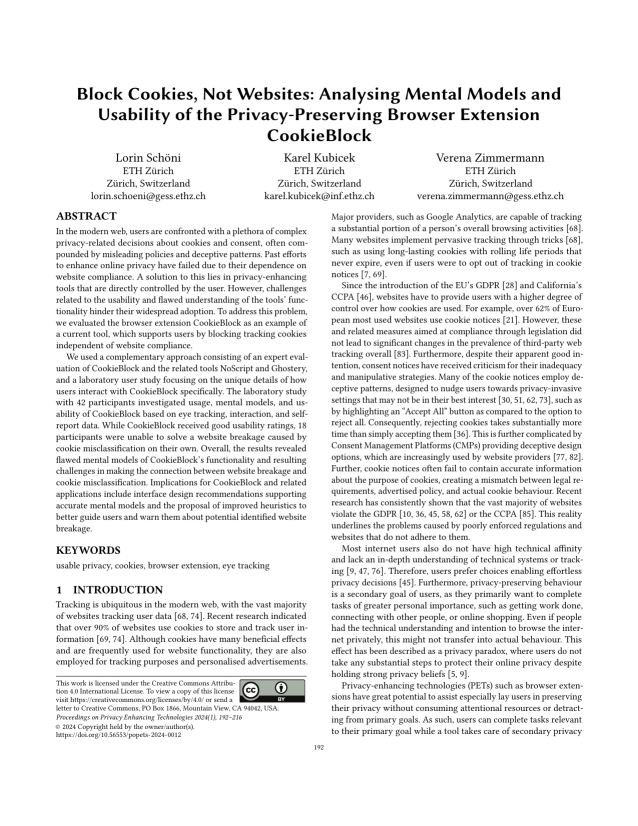Block Cookies, Not Websites: Analysing Mental Models and Usability of the Privacy-Preserving Browser Extension CookieBlock
Authors: Lorin Schöni (ETH Zürich), Karel Kubicek (ETH Zürich), Verena Zimmermann (ETH Zürich)
Volume: 2024
Issue: 1
Pages: 192–216
DOI: https://doi.org/10.56553/popets-2024-0012
Abstract: In the modern web, users are confronted with a plethora of complex privacy-related decisions about cookies and consent, often compounded by misleading policies and deceptive patterns. Past efforts to enhance online privacy have failed due to their dependence on website compliance. A solution to this lies in privacy-enhancing tools that are directly controlled by the user. However, challenges related to the usability and flawed understanding of the tools' functionality hinder their widespread adoption. To address this problem, we evaluated the browser extension CookieBlock as an example of a current tool, which supports users by blocking tracking cookies independent of website compliance.
We used a complementary approach consisting of an expert evaluation of CookieBlock and the related tools NoScript and Ghostery, and a laboratory user study focusing on the unique details of how users interact with CookieBlock specifically. The laboratory study with 42 participants investigated usage, mental models, and usability of CookieBlock based on eye tracking, interaction, and self-report data. While CookieBlock received good usability ratings, 18 participants were unable to solve a website breakage caused by cookie misclassification on their own. Overall, the results revealed flawed mental models of CookieBlock's functionality and resulting challenges in making the connection between website breakage and cookie misclassification. Implications for CookieBlock and related applications include interface design recommendations supporting accurate mental models and the proposal of improved heuristics to better guide users and warn them about potential identified website breakage.
Keywords: usable privacy, cookies, browser extension, eye tracking
Copyright in PoPETs articles are held by their authors. This article is published under a Creative Commons Attribution 4.0 license.

